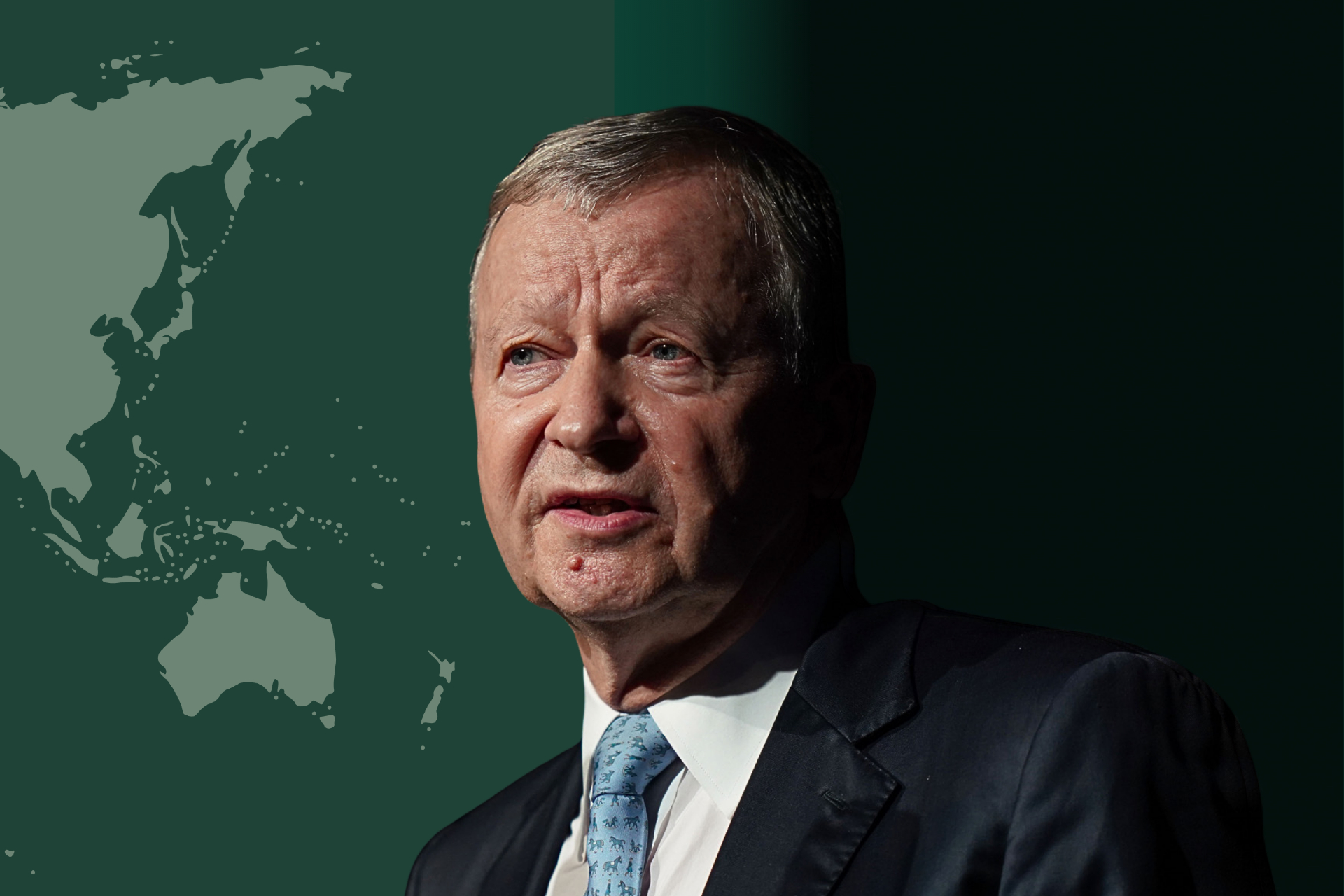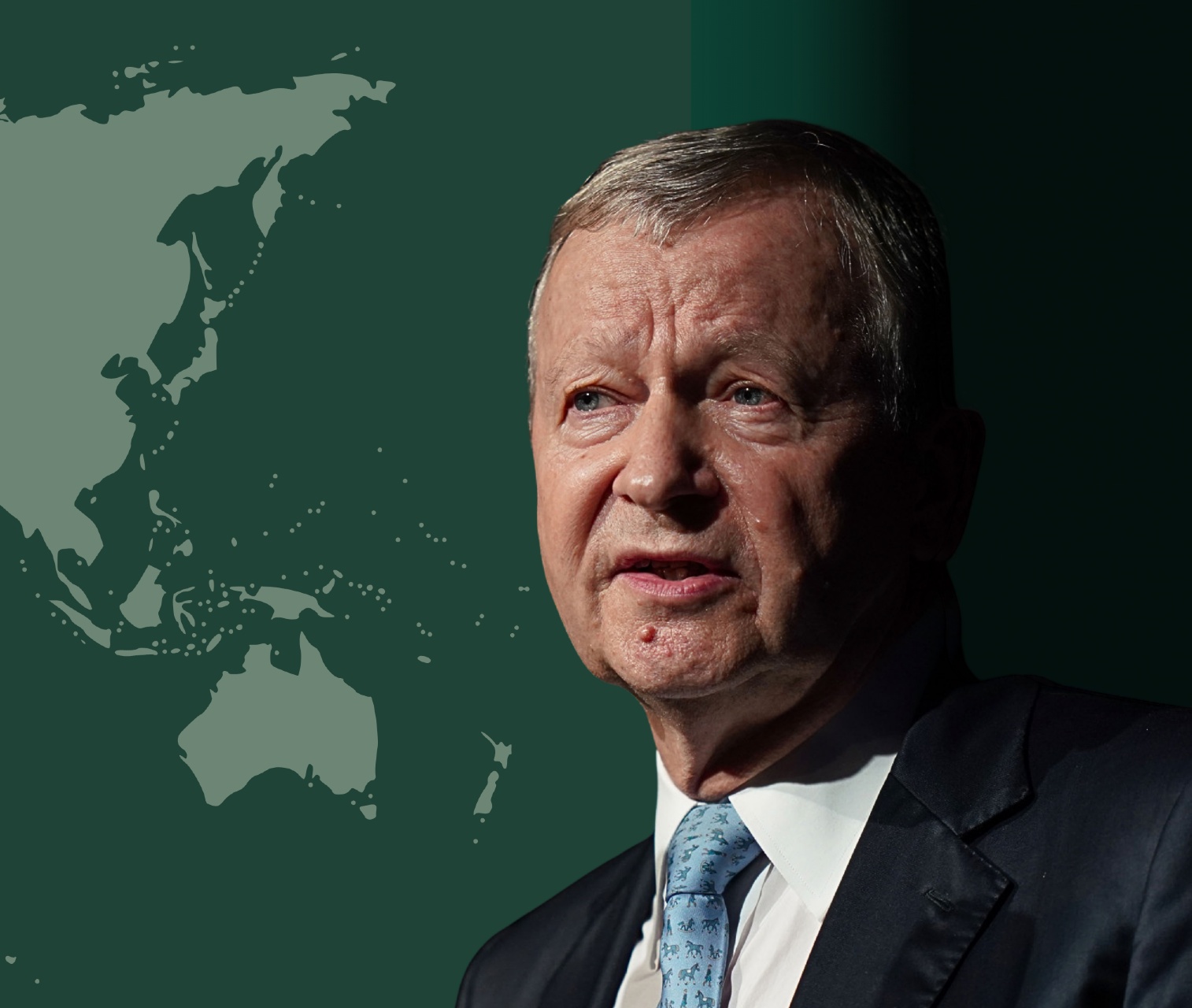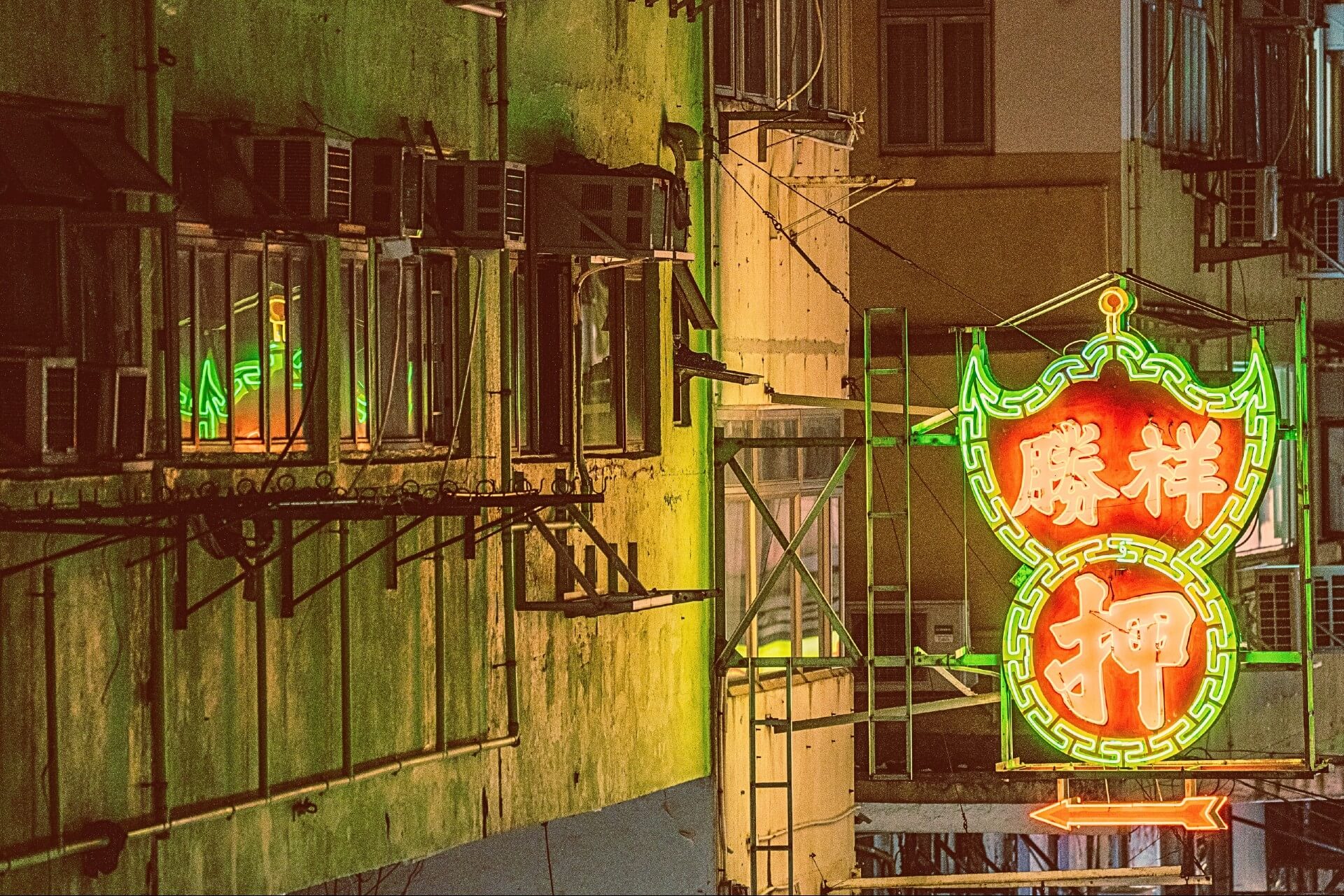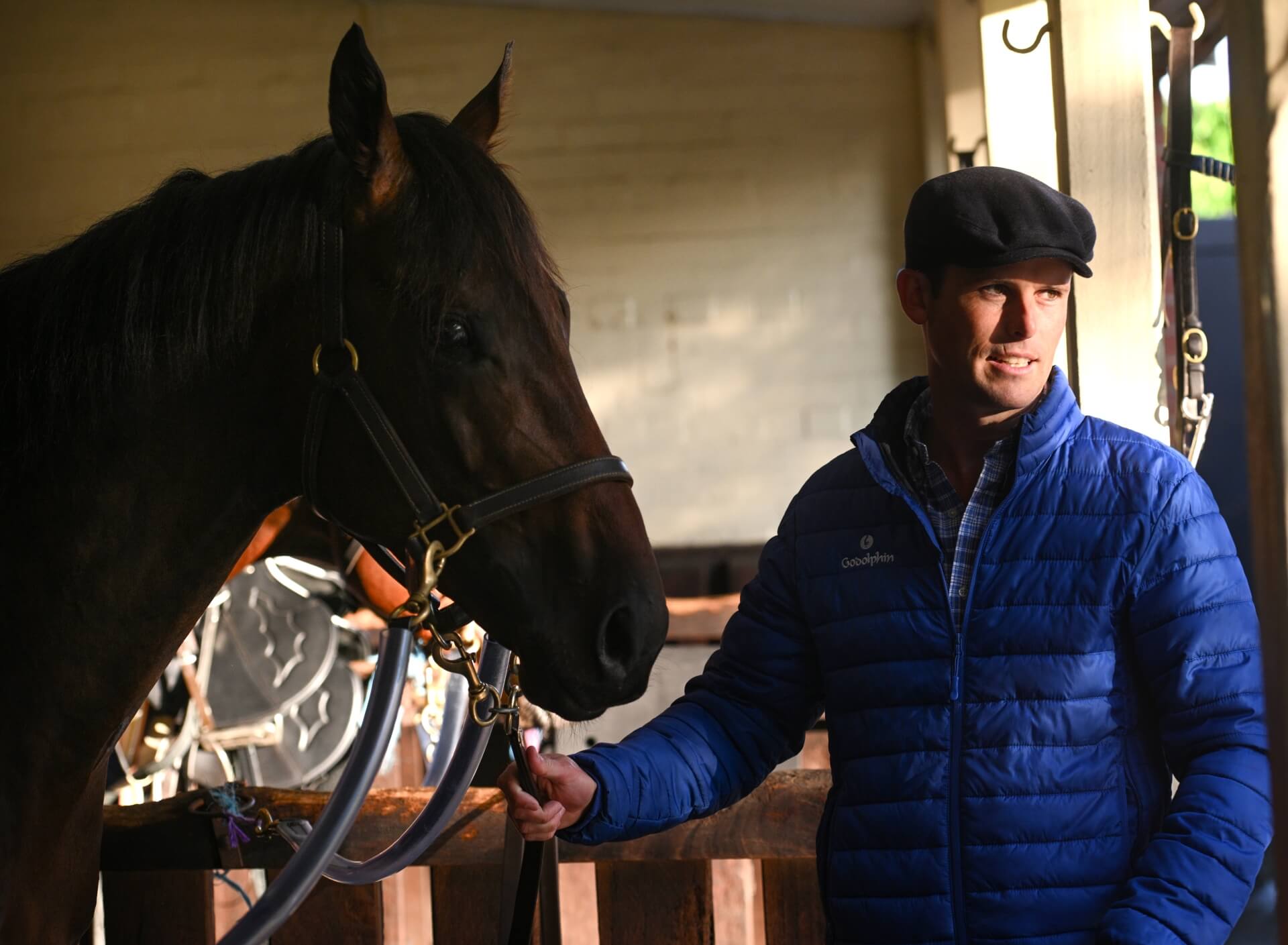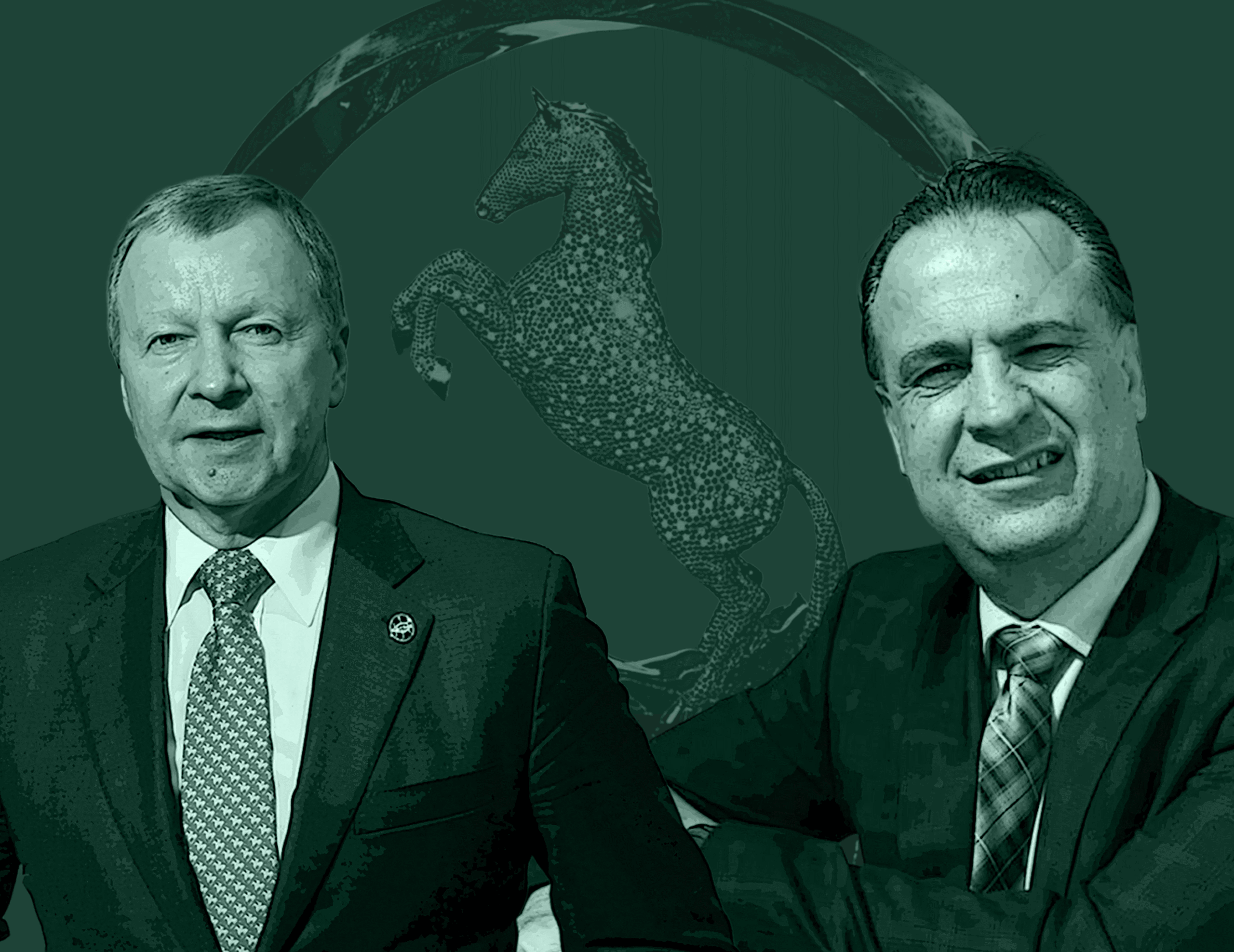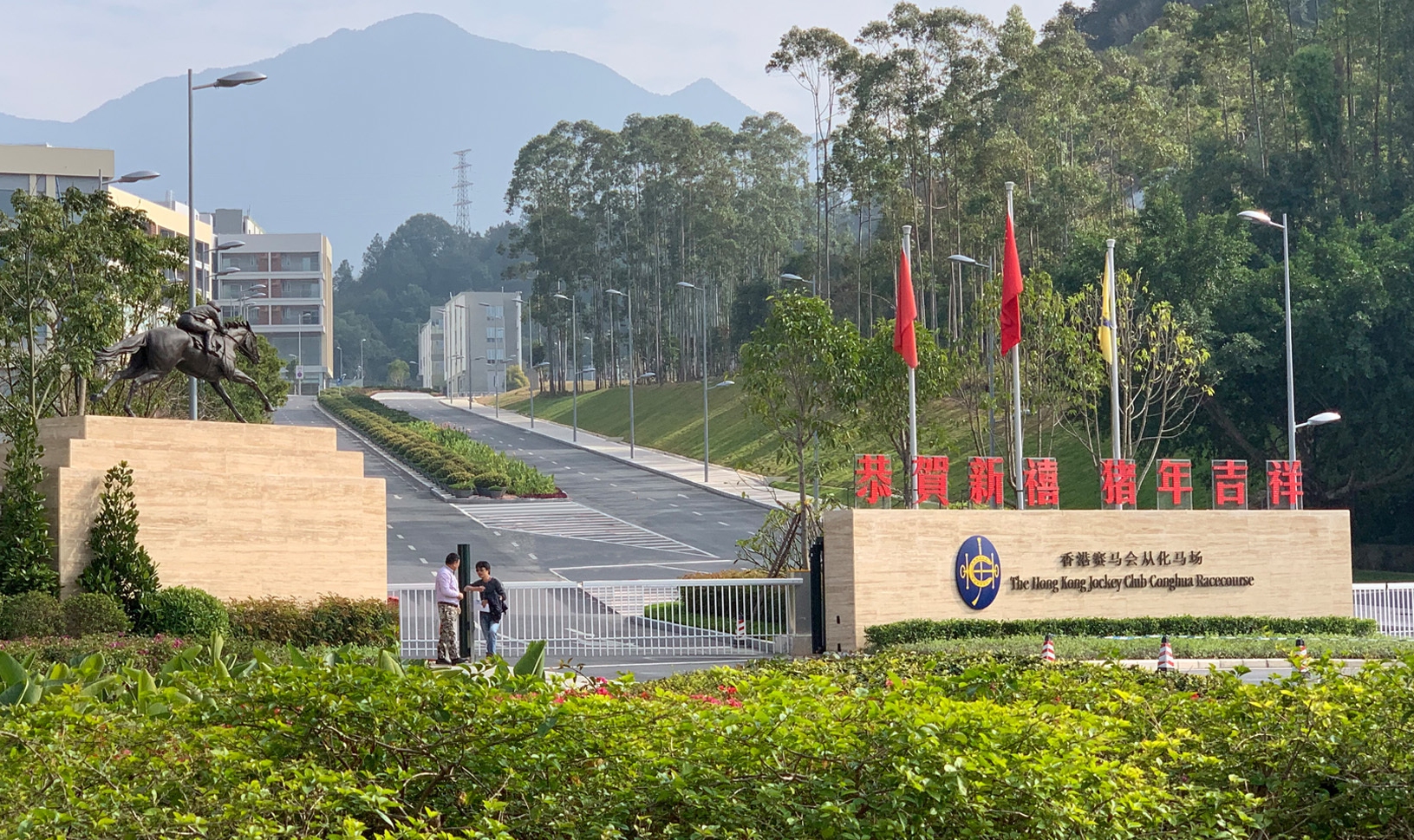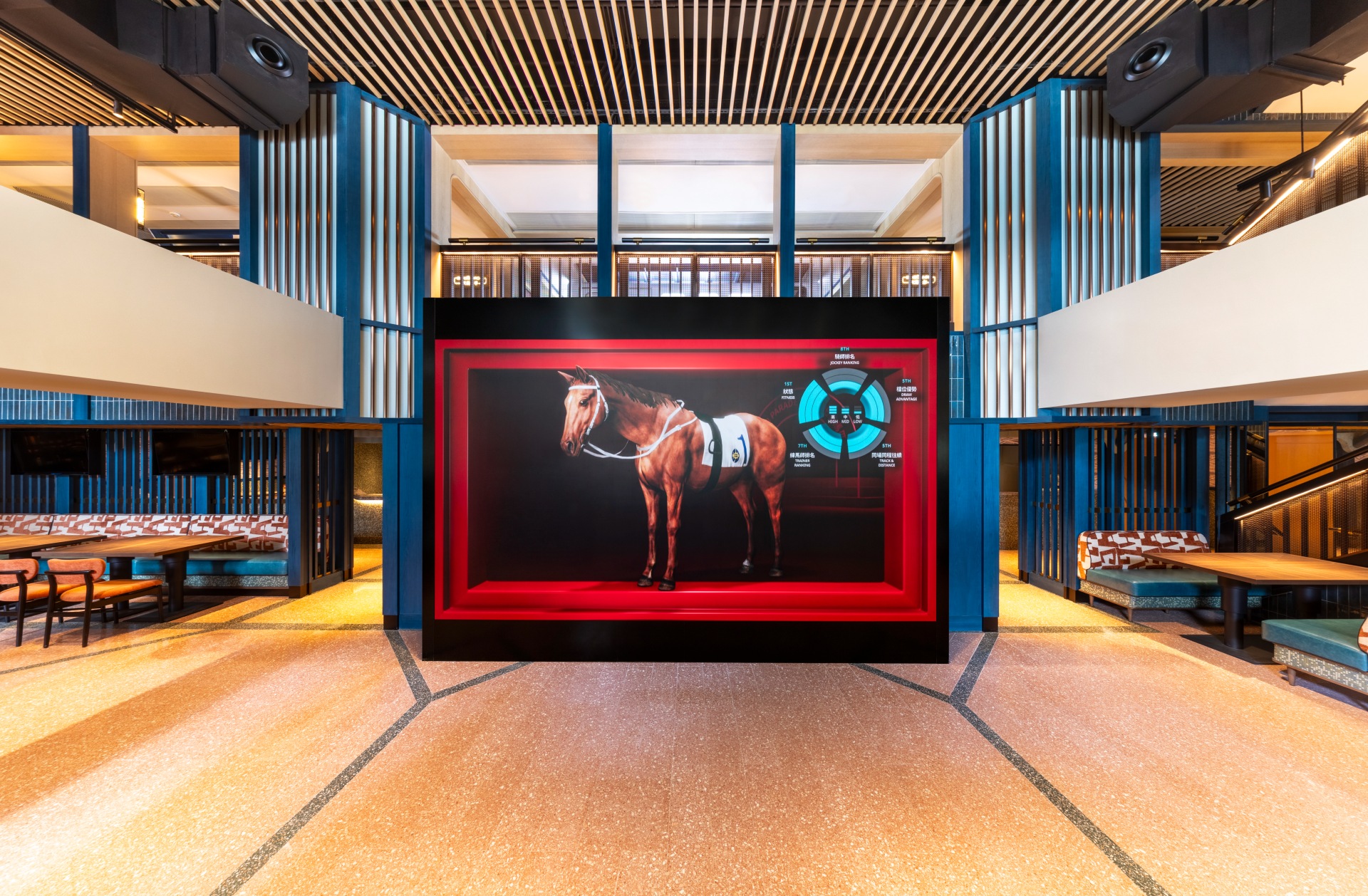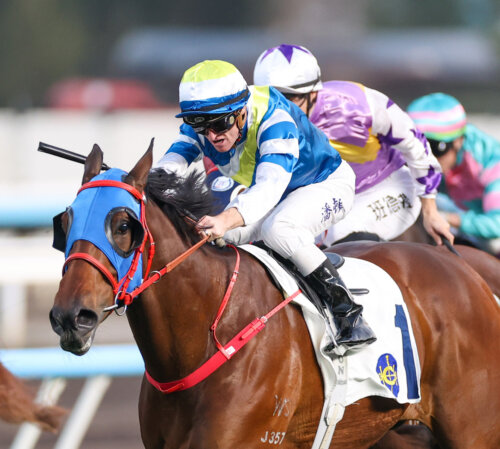“The Industry Is At A Breaking Point”: EB’s Vision And How Horse Racing Needs To Tell Its Story Better
Hong Kong Jockey Club CEO Winfried Engelbrecht-Bresges sat down with Adam Pengilly to talk parimutuel pools, his relationship with Racing NSW counterpart Peter V’Landys, racing’s need to reinvent itself and, of course, Ka Ying Rising.
“The Industry Is At A Breaking Point”: EB’s Vision And How Horse Racing Needs To Tell Its Story Better
Hong Kong Jockey Club CEO Winfried Engelbrecht-Bresges sat down with Adam Pengilly to talk parimutuel pools, his relationship with Racing NSW counterpart Peter V’Landys, racing’s need to reinvent itself and, of course, Ka Ying Rising.
23 September, 2025WALKING past the rows of luxury vehicles in an underground car park at Happy Valley, there is a spot where Hong Kong Jockey Club officials feel what horse racing means to this thoroughbred-obsessed city.
On Wednesday nights, the best spot to be often depends on your taste. It could be the beer garden heaving with revellers, the top-storey open air balcony where the concrete tower blocks and bamboo scaffolding cast giant shadows over the track below, or maybe it’s pressed against the glass window of a corporate suite chilled with cold drinks, and probably more importantly air conditioning.
All those places are great vantage points but to have a unique experience of how racing feels and sounds, you need to go to a small section underground, immediately below the 1200-metre point, right as the horses thunder past on this saucer-like track, twisting and turning so often it never feels like you’re completely balanced when riding one.
“If you stand right here, you can hear the horses galloping above you,” says a Hong Kong Jockey Club official.
It’s hard to go anywhere in Hong Kong without feeling what the sport means to this tiny part of the world, which spins on an axis of twice-weekly meetings and the constant allure of finding the next winner.
High in the Happy Valley grandstand as dusk closes in, the man who has presided over this energetic racing jurisdiction for almost two decades walks into a corporate area, immaculately dressed, surveying the most unique racetrack in the world below him. Recreational sports men and women play on the infield as the lights flicker into action, would-be runners circle the infield at one of Hong Kong’s most popular exercise routes.
Winfried Engelbrecht-Bresges, one of the most powerful figures in world racing, briefly glances below at his kingdom and switches to a sermon about horse racing’s desperate fight for a new generation of fans.
Every subject is on the table: from his grand vision for the parimutuel and World Pool markets to stimulate betting across the globe, the Jockey Club’s push into NBA wagering, imminent racing on mainland China and Ka Ying Rising to his relationship with Racing NSW supremo Peter V’landys and Australia’s spats over black type races.
Engelbrecht-Bresges is handed briefing notes for the interview, but over the course of more than an hour, barely glances at them. He rattles off statistics about the Jockey Club’s enormous tax contributions to the Hong Kong government (HK$30.1 billion, around US$3.85 billion) and charitable donations throughout the city (close to HK$10bn, US$1.3bn). As with everything in Hong Kong, he’s across it. He’s a man who rarely works on tomorrows, next months or even next years, and openly talks to the press after most meetings at Sha Tin.
“I’m a person who normally looks not at five years in strategy, I look 10 years or sometimes longer,” Engelbrecht-Bresges tells Idol Horse. “If you only stay as hardcore racing – worse is hardcore wagering – you will not have a chance to survive. It’s long term that this club has to reposition itself.”
It’s a curious concession from a man who leads the most punting-driven racing jurisdiction in the world. Take a few minutes to walk the vast length of the main grandstand at Sha Tin any given Sunday and tens of thousands of bettors are spread into tailor-made areas: digital hubs, lounges, restaurants, basic public seating on the concourse. No children are allowed on track, and there’s always a countdown to the next race.
Earlier in the day, Engelbrecht-Bresges had a meeting with Rosanna Law, Hong Kong’s Secretary for Culture, Sports and Tourism, where she encouraged the Jockey Club to collaborate more with other sporting and leisure organisations in search of a new market.
“I still believe that the sport is unique,” Engelbrecht-Bresges says. “That the love for horses, the competition – it is something which not every sport has.
“If you see a horse like Ka Ying Rising, I call it poetry in motion. It is this amazing beauty of horses moving in a gallop. And this emotional connectivity we cannot create if we don’t focus on this vital connectivity.
“I don’t think the sport is good at telling stories about itself. It’s hard core information, but how do you tell a story? If you look at Formula 1 or NBA, they still tell stories which creates interest. And then people want to know more.”

Engelbrecht-Bresges wants people to know more about his plans for a revamp of the global wagering market, in which punters can be in the United States or France and betting into the same pots as punters as in Hong Kong or Australia and New Zealand. The World Pool concept has been operating on select meetings across the globe for more than five years but is expanding.
The international betting ecosystem is already under extreme pressure: in the United Kingdom, participants have already gone on strike against proposed tax rises; while in Australia online bookmakers, which hold most of the money, are also creaking under steep levies from state governments and horse racing regulators. Australia’s tote has been in decline for years, and its own federations don’t even combine money into the one pool let alone with multiple countries.
“I want to see that we, as an industry, create a new product which shows the world class sport and has the significant liquidity to help revitalise it,” Engelbrecht-Bresges says. “Because the industry is at a breaking point.”
Engelbrecht-Bresges is already in talks with Tabcorp about their progress on moving to a national tote in Australia and has flagged the idea of a central command centre being used to run the technological aspect of World Pool once the number of meetings covered increases. The Jockey Club has successfully lobbied the Hong Kong government to increase the number of simulcast meetings to 53, along with 43 individual races.
A growing number of those simulcast fixtures are World Pool events, in which betting pools are hosted by the Jockey Club and commingled with bettors from around the globe.
But World Pool hasn’t been without its critics, who point to diminishing returns compared to fixed odds prices, and large punters have been resistant to invest on the parimutuel because of high takeout rates compared to their home jurisdiction.
Engelbrecht-Bresges has a simple retort: on the tote, any punter can get their money on while online bookmakers continually ban winning punters around the world and there will be a harmonisation of the takeout level.
“When you see what happened in some countries, like especially in England, with successful customers their accounts were closed because it’s fixed odds (bookmakers),” he says. “So, if you want to keep an ecosystem where you have customers, you cannot close them down.
“So, you tell people you’re not wanted in the sport and the racing industry has given this right away to an external (company) who has a different commercial objective?
“That’s why I hope the World Pool creates an alternative. And people say, ‘I can have my money on’. Otherwise you practically drive the money away from the legal market, (because) either the people stop betting or you drive them to the illegal market.”
Engelbrecht-Bresges has found an unlikely ally in his World Pool push: V’landys.
The pair are almost kindred spirits; the most influential figures of the past 20 years in their country when it comes to horse racing, uber savvy making money, and unashamedly stubborn about their beliefs.
V’landys won a crucial court case against Australia’s rapidly growing online bookmaker market more than a decade ago, which legislated he had the right to charge wagering providers a fee for betting on horse races within the state of New South Wales (NSW). The other principal racing authorities swiftly followed.
It led to the rivers of gold flowing into V’landys’ coffers at Racing NSW, but his relationship with Engelbrecht-Bresges remained thorny, not least of all because of the Chris Munce saga (the jockey was given a licence upon returning to Australia despite Hong Kong authorities disqualifying him for 30 months).
Relations have thawed. V’landys has hosted Engelbrecht-Bresges in his plush suite for Australia’s A$20 million The Everest sprint race and during The Championships, and he has leant his support in return to Engelbrecht-Bresges’ vision for World Pool to be the way forward for global wagering.
“For me, not about personality,” Englebrecht-Bresges says.
“In the end, Peter has definitely gone through an interesting phase and I think he appreciates that World Pool is, in his view, a game changer. And he wanted to be part of something which he thinks is a game changer for the industry. So that was what helped to create a new beginning in this.”
The new beginning has also been helped by one horse: Ka Ying Rising.
The David Hayes-trained, Hong Kong-based champion will start a short-priced favourite in The Everest at Royal Randwick after racking up 13 straight wins. The Jockey Club negotiated a deal with slotholder The Australian Turf Club to lease a position for Ka Ying Rising to compete in the race on one proviso: the horse had time to return for the International meeting at Sha Tin in December.
Ka Ying Rising can be a winner for both men: for Englebrecht-Bresges, it’s about national pride and Hong Kong showing off the world’s best sprinter in a country full of classy short coursers; while V’landys will attract a global superstar to headline his phenomenon and count the wagering bounty that will come with it.
V’landys’ The Everest concept has upended how people think about Australian horse racing: a mega money event based on The Pegasus in which slotholders fork out A$700,000 each year to choose a horse to race under their banner.
Engelbrecht-Bresges is full of praise for the V’landys vision, and stresses it only works in Australia because of the “concentration of sprinters … and propensity for innovation in Australia is higher”.
“The real challenge will come in five to 10 years,” Engelbrecht-Bresges says. “If you would have permanently dominant horses winning it, that’s a risk. So as long as you have even a bunch (it works). So, I hope that Ka Ying Rising is not a curse.”
More than the race itself Engelbrecht-Bresges is a fan of The Everest’s “presentation and position”, the type of entertainment crossover that the Club is attempting through a strategic partnership with XIX Entertainment, the entertainment company founded by Simon Fuller (famous for American Idol and Spice Girls).
“It is more than a horse race,” he says of The Everest. “The whole entertainment and marketing is similar to what you do in Formula 1.”
But while The Everest promises to have its biggest edition yet thanks to Ka Ying Rising, behind the scenes its administrators remain at war over how the country handles its black type races and what it means for pedigree pages.
Years of bickering about which state’s races should be upgraded or downgraded – The Everest and Victoria’s All-Star Mile now carry G1 status – has frustrated global racing authorities.
Engelbrecht-Bresges is the chair of the International Federation of Horseracing Authorities (IFHA) and the Asian Racing Federation (ARF) and hinted at frustration from other parts of the world with Australia.
“In the end, you disrupt, you innovate,” he says. “But after a certain period of time, you have to come to a system because if not, it is chaos. This is really not well regarded in the international racing and breeding community.
“And now it comes to an issue that the upgrade of further Australian races recognised by the Asian Pattern Committee is stalled.”
The Jockey Club is about to take on its own new frontier with racing at Conghua in mainland China to begin in October next year.
It’s not a new discussion, with the prospect gaining traction in the aftermath of the Beijing Olympics, 10 years before the facility had its official opening in August 2018. But with many horses who race in Hong Kong already based at Conghua’s training facility – including Ka Ying Rising between most of his starts – the Jockey Club is finally ready to pull back the curtain on legalised races in China.
There are still many things to be finalised. How many meetings will be held there? Who will participate? Will the Jockey Club prioritise the development of young jockeys in China? What will the breeding and equestrian industries to accompany it look like? How will it be received by locals?
But one thing is for certain: it won’t have betting as we know it, at least in places like Hong Kong or Australia.
Asked about the excitement of racing in Mainland China seemingly dissipating over the years despite it now being within sight, Englebrecht-Bresges says: “I think a lot of people were excited about racing because they think they can go to China and get a huge chunk of a massive customer base in the gaming market.
“But then everybody realised, ‘this is not the new big honey pot and I can’t tap into it everywhere’. Wagering in China will not happen like (in Hong Kong), and I’m sceptical that it ever happens in the form that we’re used to. But it could be in a different form.
“For us, it is really about showcasing Hong Kong racing. I may now sound very patriotic, but there is a role for Hong Kong to make contributions to the development of China.”
By the time racing begins at Conghua, the Jockey Club’s training and riding roster could look very different, with Australian James Cummings – who was Sheikh Mohammed bin Rashid al Maktoum’s private trainer at Godolphin for eight years – joining the ranks for the 2026-27 season.
It was almost unprecedented for the Jockey Club to announce his coup more than 12 months before he starts training, but circumstances meant Engelbrecht-Bresges had to “modify a bit” when Cummings became available.
The jockey merry-go-round, perhaps, is more intriguing. Zac Purton’s stranglehold on the city shows no signs of slowing, despite dropping regular hints about retirement. He’s won eight titles and is closing in on being the first to ride 2000 winners in Hong Kong.
But he will likely have an instant challenger if the Jockey Club has its way: James McDonald.
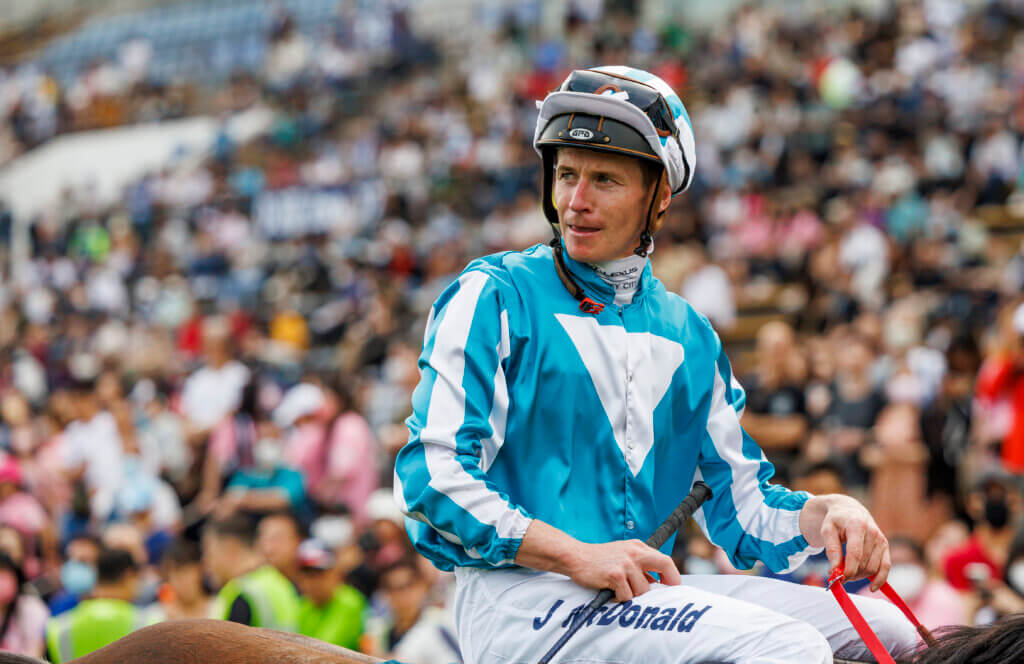
The ‘world’s best jockey’ has long been the dominant force in Australia and is closing in on the country’s record for most Group 1 winners, held by Damien Oliver (129). He’s long harboured an interest in riding permanently in Hong Kong, but has kept his trips to fly-in fly-out missions, mostly to ride Romantic Warrior. McDonald has committed to a six-week stint from mid-November – as he has for the last two seasons – but is there a permanent spot on the roster for J-Mac?
“I think everybody would like to have James McDonald tomorrow,” Engelbrecht-Bresges shrugs. “I would be lying if I said no.
“But one has to respect that every sportsman like him is in a career and wants to achieve certain things before he maybe makes his move. And if you see how much support (Chris) Waller has given him after he had a very difficult time, I think I would want to respect somebody like Chris Waller too.
“So I’m optimistic that it will happen. I think it’s in the hands of J-Mac. And maybe he waits for the opportunity to be the top dog, which would become a little bit easier if somebody retires.”
McDonald making the move upon Purton’s retirement seems logical but imagine if they went toe to toe for a couple of seasons.
“I don’t want to take anything away from Zac, who is a fantastic jockey,” Engelbrecht-Bresges adds. “But Zac is always speculating a little bit when he retires. I think sometimes it is interesting to say, ‘we treasure you and we love you’.
“And you need, in my view, always three (superstars). If you have more than three top jockeys, it can get very difficult.”
Australia’s champion Group 1 trainer Waller has also been a longtime target “to accomplish” for Engelbrecht-Bresges, but he concedes the chances of the ex-pat New Zealander moving to Hong Kong are “limited” given his gargantuan multi-million-dollar business run out of Sydney.
The sun might not have quite set on his brazen bid to have Waller on the Jockey Club’s roster, but it has well and truly dipped behind Happy Valley’s mountainous backdrop as the giddying lights take over on a steamy night.
Engelbrecht-Bresges has long overseen this kingdom, and there’s no immediate plans to stop yet, not with new global frontiers on the horizon and scores of luxury car owners in Happy Valley’s underground precinct to keep happy.
And with that, he picks up his phone.
“It’s amazing how many emails you can get in an hour.”
Sixty-three, to be precise. ∎
